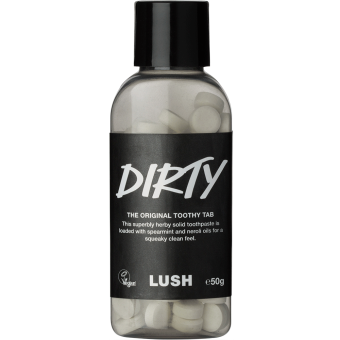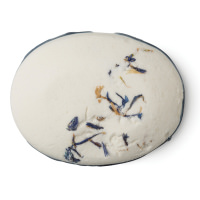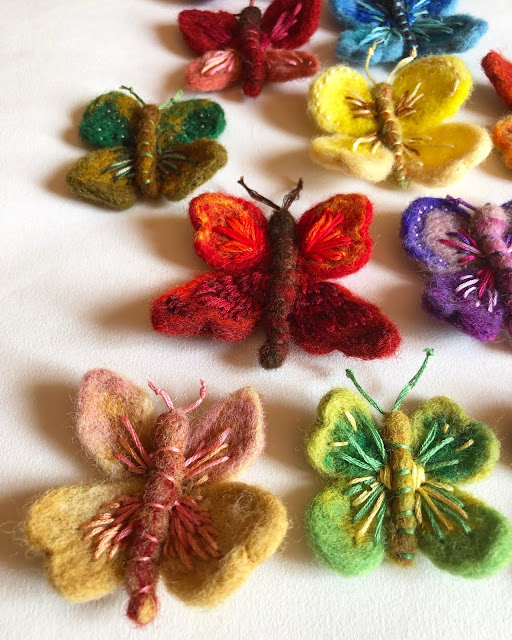a plastic free manifesto - small steps...
We have always tried to be careful with what we throw away in our huge council refuse bins but it wasn't until a mix up with the the council recycling collection bins that highlighted the horror in just how much recycling waste we as a family (let alone the whole street) had accumulated in 4 weeks.
Recycling is great but what exactly is it that we are putting in those bins, how and where is it being recycled? There are some startling news reports about China refusing to take our (the UK) recycling refuse that we are all beginning to see in the mainstream along with documentaries on the harm plastics are doing to our oceans, could we and should we try to reduce both the refuse and recycling?
Without having to go through our recycling bin it was quite obvious that most of the waste was paper/card, glass with the odd bit of plastic (our council don't recycle much plastic). Not too bad but then we realised that the normal landfill refuse bin contained a lot of un-recyclable plastic and vegetable peelings.
So why am I writing this blog post?
We have decided to try and cut back on our plastic consumption along with general household waste whether its recycled or not. In writing a sort of plastic free manifesto here for you all to see will hopefully encourage us to keep at it and perhaps inspire you all.
Im intending to research more over time and give you some hints as to what we already do thats environmentally friendly as well as what Im planning to do, use or buy to make it a little easier, as well as being cost effective.
So here is our little list and hints, which Im sue we will add too over time:-
1. Cook from scratch
I am lucky to have time, knowledge and passion to cook meals from scratch, this will eliminate those pre-packaged meals that are usually come in black plastic trays, plastic film and cardboard. Having a vegan and a vegetarian in the family you tend to cook more from scratch, I do struggle with finding some products that are heavily packaged for instance soya and tofu, I know I could make tofu and seriously considering the possibility but has anyone got good tips on this?
2. Visit local the local grocer/butcher/baker
Ive spoken to our local butcher who says he is happy for me to bring in my own container or they can wrap the produce in paper, they also sell cheese. This could also apply to the deli counters in supermarkets. The greengrocer has paper bags and a lot of the produce is plastic free especially seasonal vegetables and fruit.
As for bread, I've gone back to making my own, flour comes in paper bags and yeast from the bakers and if I don't make it then we will buy it from our local bakery as it comes in a paper bag. Im going to purchase one of these Beeswax Bread Wraps to keep my bread fresh and also look into their other wraps so that I don't have to use foil anymore. I gave up clingfilm a long time ago as we don't get on....does anyone?
3. Buy package free goods and refill where possible
Living in Brighton we are very lucky to have shops that sell produce in bulk where you can refill, this is great for cutting back on packaging as you can either reuse your bottles or take in jars/canvas bags to fill up with dry goods. Hisbe is a fantastic example, not only for refilling but also uses local producers as much as possible. Another fab idea is from Charlotte's Cupboard, selling goods that you can stock up on again refilling your jars and bottles. Its a a new venture that travels around the local markets in Peggy a 100% electric van, Im looking forward to visiting them soon to stock up on many items, they also have a great entertaining Instagram page!
If you do shop via a supermarket (which we do as well) try purchasing items that are not highly packaged, we've swapped our clothes washing liquid for powder as that comes in cardboard box and spreadable butter for blocks of butter sold in paper.
There are some hardcore eco people who also unwrap the items they buy leaving the supermarket to deal with the packaging, perhaps if we all did this then the message might get across, does a cucumber really need a plastic wrap?
4. Support your local milk delivery
We've been using our local milk delivery for years, it was more due to the frustration of always running out of milk with the prospect of heading down the shops in your pyjamas. We all grew up with milk being delivered to our doorstep so why has it become such a rare occurrence? Who remembers Humphrey?
Yes it is slightly more expensive but think of the positives, the milk is more likely to have been produced and bottled locally (there are some farmers out there that offer this), its on your doorstep in the morning when you need that first cuppa, theres no plastic...zilch! At Christmas not only do you get the holly print on your milk bottle top you even get (well we do) a handwritten Christmas card from your milkman! We use Milk and More, check out their website and see if they deliver to your area.
Recycling is great but what exactly is it that we are putting in those bins, how and where is it being recycled? There are some startling news reports about China refusing to take our (the UK) recycling refuse that we are all beginning to see in the mainstream along with documentaries on the harm plastics are doing to our oceans, could we and should we try to reduce both the refuse and recycling?
Without having to go through our recycling bin it was quite obvious that most of the waste was paper/card, glass with the odd bit of plastic (our council don't recycle much plastic). Not too bad but then we realised that the normal landfill refuse bin contained a lot of un-recyclable plastic and vegetable peelings.
So why am I writing this blog post?
We have decided to try and cut back on our plastic consumption along with general household waste whether its recycled or not. In writing a sort of plastic free manifesto here for you all to see will hopefully encourage us to keep at it and perhaps inspire you all.
Im intending to research more over time and give you some hints as to what we already do thats environmentally friendly as well as what Im planning to do, use or buy to make it a little easier, as well as being cost effective.
So here is our little list and hints, which Im sue we will add too over time:-
1. Cook from scratch
I am lucky to have time, knowledge and passion to cook meals from scratch, this will eliminate those pre-packaged meals that are usually come in black plastic trays, plastic film and cardboard. Having a vegan and a vegetarian in the family you tend to cook more from scratch, I do struggle with finding some products that are heavily packaged for instance soya and tofu, I know I could make tofu and seriously considering the possibility but has anyone got good tips on this?
2. Visit local the local grocer/butcher/baker
Ive spoken to our local butcher who says he is happy for me to bring in my own container or they can wrap the produce in paper, they also sell cheese. This could also apply to the deli counters in supermarkets. The greengrocer has paper bags and a lot of the produce is plastic free especially seasonal vegetables and fruit.
As for bread, I've gone back to making my own, flour comes in paper bags and yeast from the bakers and if I don't make it then we will buy it from our local bakery as it comes in a paper bag. Im going to purchase one of these Beeswax Bread Wraps to keep my bread fresh and also look into their other wraps so that I don't have to use foil anymore. I gave up clingfilm a long time ago as we don't get on....does anyone?
3. Buy package free goods and refill where possible
Living in Brighton we are very lucky to have shops that sell produce in bulk where you can refill, this is great for cutting back on packaging as you can either reuse your bottles or take in jars/canvas bags to fill up with dry goods. Hisbe is a fantastic example, not only for refilling but also uses local producers as much as possible. Another fab idea is from Charlotte's Cupboard, selling goods that you can stock up on again refilling your jars and bottles. Its a a new venture that travels around the local markets in Peggy a 100% electric van, Im looking forward to visiting them soon to stock up on many items, they also have a great entertaining Instagram page!
If you do shop via a supermarket (which we do as well) try purchasing items that are not highly packaged, we've swapped our clothes washing liquid for powder as that comes in cardboard box and spreadable butter for blocks of butter sold in paper.
There are some hardcore eco people who also unwrap the items they buy leaving the supermarket to deal with the packaging, perhaps if we all did this then the message might get across, does a cucumber really need a plastic wrap?
 |
| Photo Credit: www.emmacroman.com |
4. Support your local milk delivery
We've been using our local milk delivery for years, it was more due to the frustration of always running out of milk with the prospect of heading down the shops in your pyjamas. We all grew up with milk being delivered to our doorstep so why has it become such a rare occurrence? Who remembers Humphrey?
Yes it is slightly more expensive but think of the positives, the milk is more likely to have been produced and bottled locally (there are some farmers out there that offer this), its on your doorstep in the morning when you need that first cuppa, theres no plastic...zilch! At Christmas not only do you get the holly print on your milk bottle top you even get (well we do) a handwritten Christmas card from your milkman! We use Milk and More, check out their website and see if they deliver to your area.
5. Eco beauty and health products
Apart from refilling your shampoo, conditioner and shower bottles at places like Hisbe we have also looked into what high street stores might offer. The other day my husband and I popped into Lush, yes Lush! So many times I have waited outside Lush for my son to pick and choose bath bombs but never really went in to investigate. How silly were we not to step foot in sooner, they have so many products that are not only free from animal testing but free from packaging. Not only that what packaging they do use can either be recycled or given back to the store. So what did we discover? Im tempted by the hair shampoo bars as that eliminates all packaging, my husband bought the Dirty Toothy Tabs to replace his toothpaste, the jury is out on that one at the moment as its quite pricey and needs a bit more time to see how it goes.
Photo Credit: https://uk.lush.com
Im also interested in their solid deodorants, I try not to use that much deodorant and when its needed we tend to use ones that are aluminium free but of course they come in plastic packaging so has anyone used these Lush ones and are they any good?
They are worth looking into as you might be surprised. We've also bought bamboo toothbrushes but I'm still using my electric toothbrush for that extra clean! As for feminine sanitary products so many have plastic either in or around them, swapping those for organic cotton products or the Mooncup couldn't be more simpler.
My next wish is to try and find eco packaged face cream/moisturiser, I'm quite fussy with dry sensitive skin so that might take a little longer.
Anyway, thats just a few ideas and tips which like I said might change and evolve but any small amount of plastic and excess packaging that we can reduce will help towards keeping this planet of ours alive a little longer!





.jpeg)
Comments
Teresa x